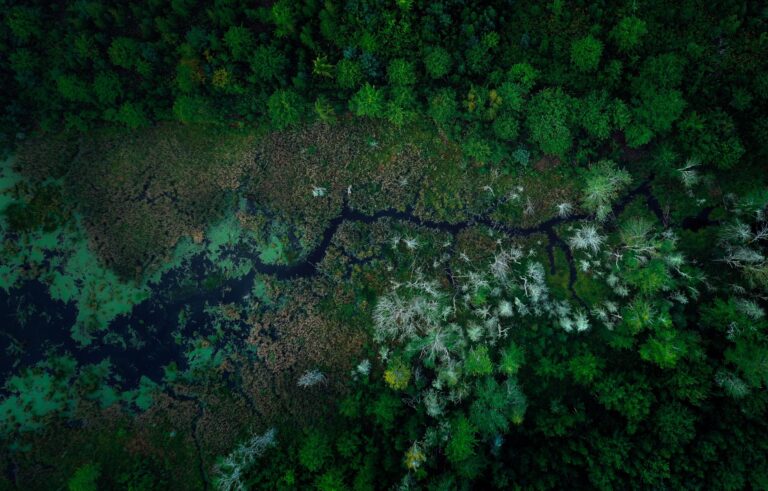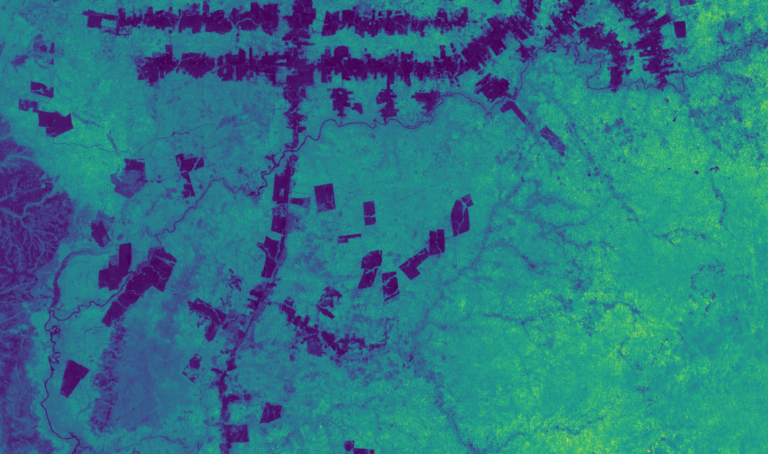How the Symbiosis Coalition will catalyze nature-based carbon removal
When it comes to addressing climate change, one fact is undeniable: we cannot succeed without protecting and restoring nature. Emissions from tropical deforestation contribute a comparable amount of greenhouse gas (GHG) annually as the total emissions of the United States1. With each year that goes by without meaningful reduction in global GHG emissions, the urgency for effective carbon removal solutions only grows stronger. But a recent announcement signals a new chapter for nature restoration.
Symbiosis, a groundbreaking coalition formed by Google, Meta, Microsoft and Salesforce, has pledged to contract up to 20M tons2 of high-quality nature restoration carbon credits by 2030 using the market’s most innovative quality standards yet.
Where it began
The idea for an advance market commitment for restoration, like Frontier for nature, had been floating around for a while. The conversation around Symbiosis began over a dinner hosted by Pachama which brought together several of the world’s most influential companies committed to nature. We connected over a shared challenge: a lack of high-quality nature-based carbon removal projects despite growing demand. Without a shared understanding of quality and clear buying signal, the projects simply weren’t being started. The concept for the coalition took hold – these ambitious leaders would introduce rigorous quality criteria backed by a financial commitment that could inspire developers to build the next generation of nature-based projects.
Learn about the Symbiosis Quality Criteria
Speak with a Pachama expert to learn more about this new rigorous standard
Why it matters
While decarbonizing the economy is critical, nature is our greatest ally in addressing climate change. Yet many afforestation and reforestation projects today fall short of their potential3. Instead of fostering biodiverse ecosystems and providing additional climate impact, many projects producing carbon credits today look more like timber plantations than natural, diverse forests.
To truly make a difference, we must scale up projects that deliver durable, additional and quantifiable climate benefits in addition to the incredible value that nature-based solutions can provide to local communities and ecosystems. Symbiosis brings us one step closer to achieving this crucial objective.
Why a buyer coalition
To date, there has been no shared understanding of what constitutes high-quality nature-based carbon removal. Without clear guidance or tools, many companies have delayed or halted investment in nature altogether. In turn, without a clear signal that buyers are willing to pay a higher price for high quality, few projects are being developed with these principles.
Symbiosis seeks to change this. Four of the world’s most influential carbon credit buyers have come together, setting a trusted quality bar and a firm financial commitment behind it, to catalyze the market and unlock a new generation of supply to meet Net Zero goals.
Setting a new standard
We were honored to bring Pachama’s innovative thinking on quality to help shape the Symbiosis quality criteria. The new criteria, inspired by Verra’s forthcoming ABACUS label and leading ecosystem restoration and carbon market experts, is rich with thoughtful guidance including the following critical items that we believe will unlock integrity at scale:
- Dynamic baselines: Continuously updated baselines to ensure additionality is evidence-based, using the latest technology.
- Rigorous accounting for leakage risk: Ensuring that carbon projects do not simply shift agricultural production to other locations, thus preserving the intended carbon benefits.
- Socially and ecologically-beneficial project design: Projects must be designed with clear standards to benefit people and nature, including defined criteria for native species and benefit sharing with local communities.
- Transparency and accountability: Clear standards for financial transparency and stakeholder engagement to build investor confidence and ensure project integrity.
How others in the market can act
Cooperation between all market players is essential to unlock the climate solutions needed at the necessary scale, and Symbiosis represents an inspiring step forward.
It cannot be overstated how transformative this Coalition will be for the market. The financial commitment from the Coalition alone will catalyze a new generation of supply, and we are optimistic that this clear quality standard will bring confidence to any company taking accountability for their emissions by restoring nature. The Pachama team is excited to explore ways to contribute to the future success of the Coalition by helping to provide and source technology-backed projects that meet this rigorous standard.
Together, we can make a significant impact that extends beyond carbon, restoring biodiverse ecosystems and uplifting communities globally.
Footnotes
Pearson, T.R.H., Brown, S., Murray, L. Et Al. Greenhouse Gas Emissions From Tropical Forest Degradation: An Underestimated Source. Carbon Balance Manage 12, 3 (2017). Https://Doi.Org/10.1186/S13021-017-0072-2
Current market prices for high-quality reforestation credits range from $30-$100 per ton today and are projected to rise further, amounting to a total financial commitment that could exceed $1B. Source: How much should a reforestation credit cost
For example, 32% of ARR projects plant only non-native species: Source: Seeing the forest from the trees. A global analysis of the Afforestation, Reforestation and Revegetation project landscape in the voluntary carbon markets. Social Carbon 2023






